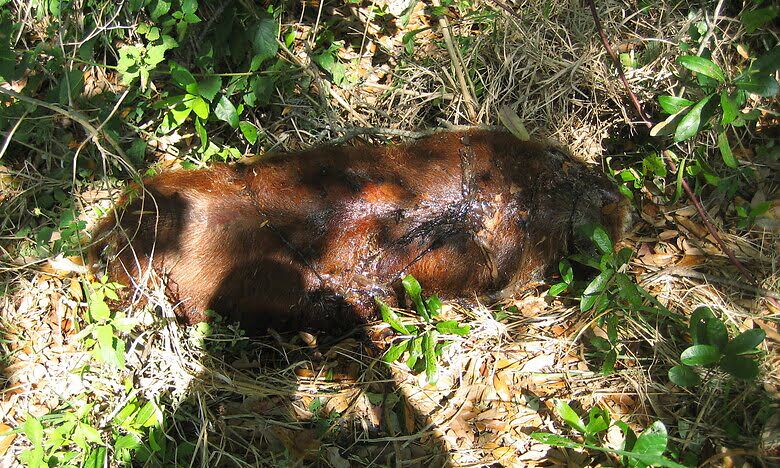You have likely passed roadkill or some sort of dead animal on the street at least once in your life, if not at least several times a year. You likely noticed that the animal is gone the next time you drive by it, but who removed it? It is very common to wonder who is responsible for picking up these dead animals. The city is typically responsible, but there are some variations within this.
The City Picks Them Up
As mentioned, the city is nearly always responsible for picking up dead animals off the street. Most cities have a department that include this in part of their responsibilities. Sometimes, it is the Department of Public Works, sometimes it is public works, animal control, sanitation, or the beautification department.
In Philadelphia, the department is called the Street Department. On California freeways, it is the California Department of Transportation. In San Diego, it is Environmental Services. In Los Angeles, it is the City of L.A. Bureau of Sanitation or LA Sanitation. Within L.A. County but not city, it is the Los Angeles County Department of Animal Care and Control. In Calgary, it is a joint effort between Calgary Roads and the City of Calgary Animal & Bylaw Services.

City Pickups Are Only on Public Property
The important thing to remember is that while most cities are responsible for picking up dead animals off the street, they typically will not pick them up off of private property. There are exceptions to this rule, but in most cases, if there is a dead animal on your property, you will have to arrange to take care of it yourself. The city may be willing to arrange to remove it for a fee, but otherwise, you could hire an animal removal company.
What the Cities Do With the Dead Animals
The steps that cities take after removing the dead animals will vary as well, although all dispose of them with a method that is sanitary.
Some freeze the remains until they have a certain amount, then incinerate them. Others will bury them along the side of the road right away, without even bringing them other places. There may also be various areas in the city where dead animals or buried or the bodies may be composted. Some cities place the remains into large drums before freezing them and throwing them in a landfill.
Each city has its own procedures in place.
Other Uses for Dead Animals
In some cases, cities may also have arrangements with scientists or museums who take the dead animals. Museums, for example, will have a team of scientists dissect the animals to analyze what they ate and preserve their bones and skin for teaching specimens. This is a common way for museums to build up collections, although it requires the dead animals to be in good condition.
Scientists outside of museums can also use dead animals to help provide DNA and increase our knowledge about the species. They are also sometimes used as bait for a predator that scientists want to tag for studying. Researchers may also use the dead animals to study anatomy and forensic decomposition.
Species-Specific Actions
Depending on the species of animal that you find dead, there may be a specific organization that ends up handling the remains, with the city likely passing the remains to them or contacting them to come remove it. Various trusts, for example, study bats to help with disease mapping and as a way to monitor the species, since many types are protected.
Can I Just Pick Up and Throw Out Dead Animals on the Street?
It is not only highly unwise to try to dispose of the dead animals yourself, but it may also be illegal or go against garbage pickup rules.
Most importantly, any time you interact with a wild animal, whether it is dead or alive, there is a risk of it transmitting disease to you. This could put your health at risk and put your family and others you interact with at risk as well.
Additionally, most cities strongly frown upon putting dead animals out with the normal waste disposal. There may be exceptions for smaller dead animals, like rats, but even then, this may not be allowed or there may be special requirements. This is a sanitary measure on the part of the city, due to the risk of improper handling of dead animals resulting in disease.
The bottom line is that if you see a dead animal on the street, you should not try to dispose of it yourself. Instead, contact your city’s appropriate department. Most cities have a phone number or dead animal removal form on their website, making this incredibly simple. When in doubt, just call the general number for your city, although if you know what department handles dead animal removal, it is best to contact them directly.
